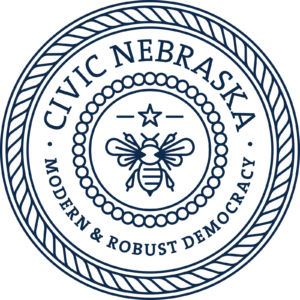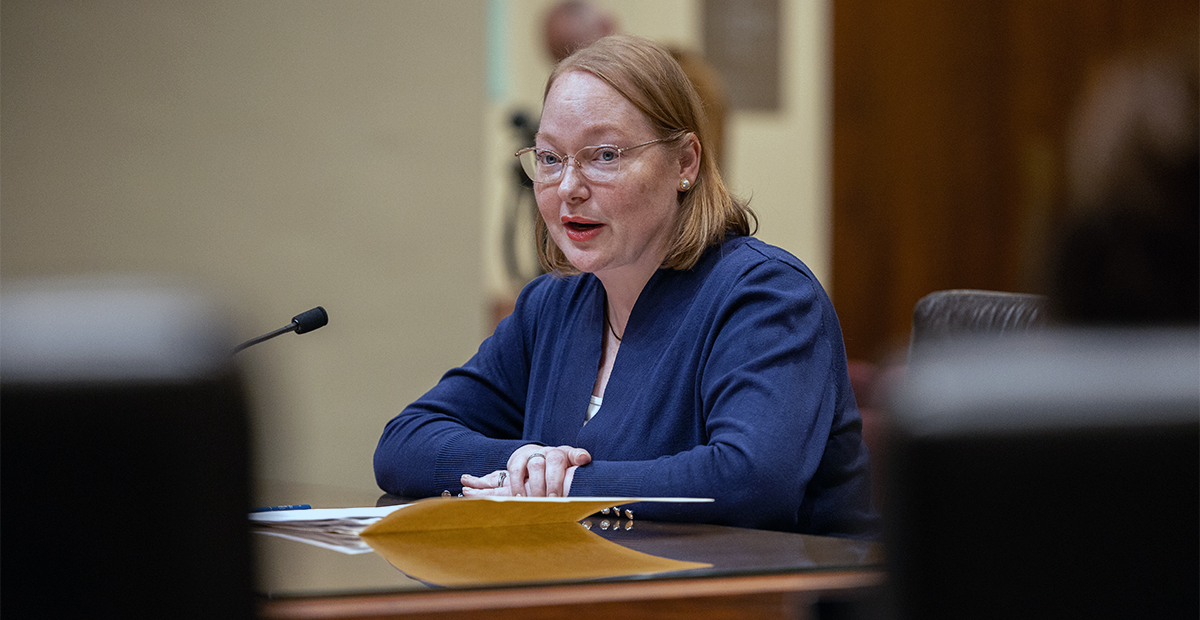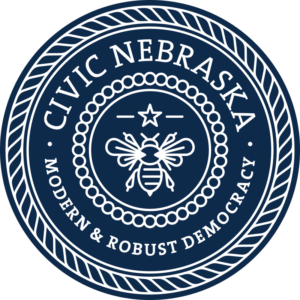 Hello, Senator Brewer and members of the committee. I’m Heidi Uhing, and I’m the public policy director for Civic Nebraska. I’m here in support of LB675 and in opposition to LB228 and LB230.
Hello, Senator Brewer and members of the committee. I’m Heidi Uhing, and I’m the public policy director for Civic Nebraska. I’m here in support of LB675 and in opposition to LB228 and LB230.
Civic Nebraska is taking an unusual position on voter ID today. We are testifying in support of LB675 because we believe it to be the most comprehensive set of policies possible to implement such consequential legislation in our state. We will always testify on the side of voters’ civil rights, and while we believe voter ID to be unnecessary, the recently passed ballot measure calls for a bill and we believe this is the least onerous version possible. If we’re going to tamper with Nebraskans’ civil rights, the least we can do is build in as many accommodations as possible to keep elections running smoothly and turn away as few voters as possible from the polls.
I’d like to identify what we see as undue burdens to Nebraskans in these voter ID bills:
- LB228 and LB230 essentially kill voting by mail, which is the clear voting preference for 40% of Nebraska voters; 55% of Nebraska voters said in a recent poll that they want to receive a ballot to vote by mail for every election.
- LB230 is unclear on how one qualifies as a disabled person and requiring them to submit a color photocopy, both with application and ballot, and reapply each election, is not only an undue burden but violates the federal requirement to make a reasonable accommodation for disabled voters.
- The notary requirement contained in the white copy of LB535 (read our Feb. 1 testimony here) is an inconvenience to voters and to notaries alike.
- LB228’s requirement for hand-counting votes at the precinct level on election day is a burden to election offices, who would never be able to acquire the staff needed to make that happen. They have 6,000 workers currently and would need 27,000 people. It’s impossible.
Conversely, LB675 provides a range of provisions that would provide voter conveniences and accommodations. We didn’t make any of these up. Voters in other states enjoy these conveniences, and Nebraskans should, too. Given the broad interest in improving our elections this session and the beneficial status of our state budget, now is the time to make these improvements to Nebraska election law to offset the inconveniences of voter ID.
- Many types of IDs are accepted, with costs covered by all bills for ID and birth certificates;
- Accepts student IDs, other state IDs, and provides a nursing home exception;
- Expired IDs accepted;
- Ballot curing via email rather than having to go back to the election office in person;
- Expand DMV hours to include evenings and weekends, mobile units; and
- ADA compliance, which is a federal requirement that we have not yet met. Another bill would provide an SOS audit every five years.
Vote-by-mail modernizations in LB675 include:
- Permanent absentee voter list for SOS to contact by mail, email, or text to ask if an absentee ballot should be sent;
- Voters would have the ability to request absentee ballots online;
- Pre-paid postage would be provided on ballots;
- Absentee voters would receive email or text ballot receipts that would confirm the receipt and status of their ballot;
- And I’d be remiss to not include automatic voter registration, which is a convenience to voters and creates efficiencies for our election officials.
- Finally, Election Day as a holiday: This is not in LB675, but we agree with this step.
In a 2022 statewide poll, Nebraskans supported increasing the number of polling places and ballot drop boxes: 74% favored, 21% opposed. They also supported establishing a permanent statewide vote-by-mail list for voters who would like to vote by mail in every election: 56% favored, 35% opposed.
I’d like to note that LB675 is the more comprehensive and fiscally moderate of the ID bills we’re hearing today. OpenSky is unable to be here but provided the following comment:
“OpenSky Policy Institute analysis indicates that the state has substantial dollars to spend, and they recommend using those dollars to make targeted one-time investments. Instead of tax cuts, we should focus on investments in our state that empower hardworking Nebraskans to care for their families and ensure their communities thrive. Sen. Day’s bill is one way we could focus on making sure people have access to investments in people and on making sure our elections are accessible to every Nebraskan.”
Not all voter ID laws are created equal. If compelled to pass a voter ID bill this session, lawmakers should err on the side of a measured and moderate framework that prioritizes voters’ rights.



